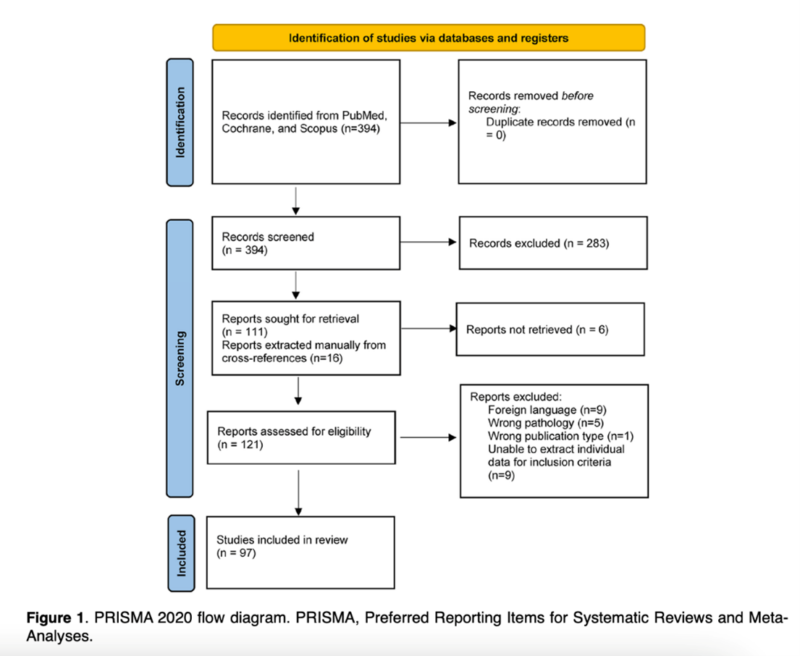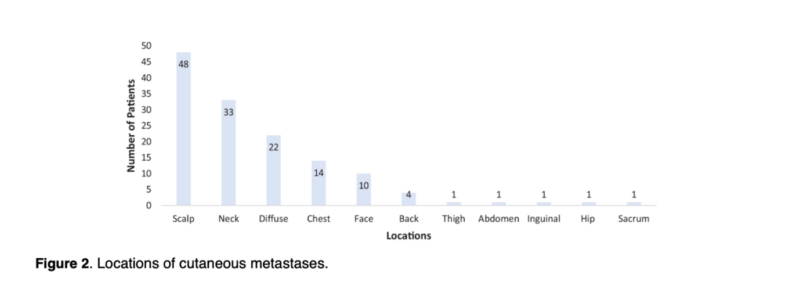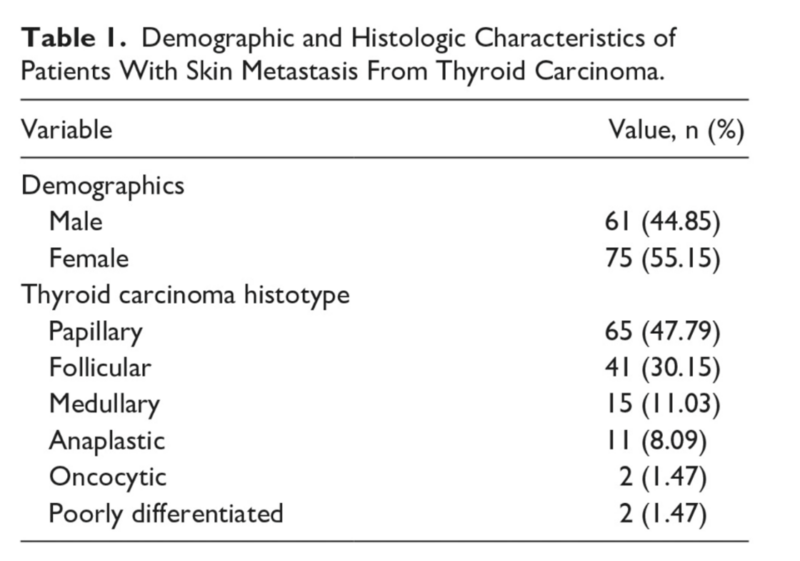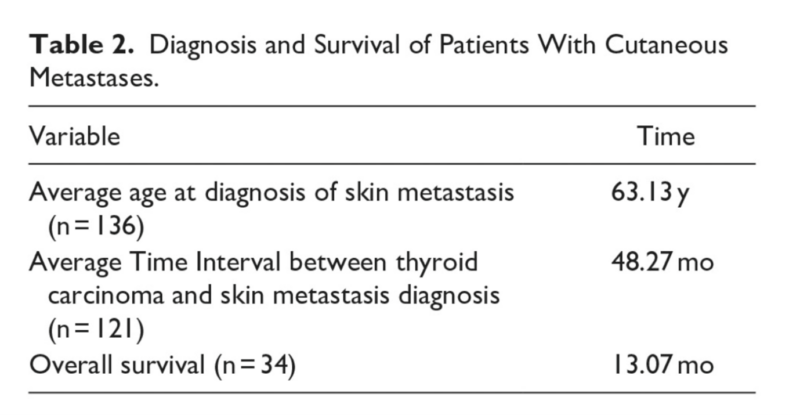Cutaneous Metastases in Thyroid Cancer: A Comprehensive Review of 136 Cases
Authors: Bao Y. Sciscent, Hanel W. Eberly, Neerav Goyal and David Goldenberg.

Published in Ear, Nose & Throat Journal, Sage Journals in March 2024
Introduction
Thyroid cancer, the most common endocrine malignancy, rarely metastasizes to the skin. This study provides an up-to-date review of cutaneous metastases from thyroid carcinoma, examining demographic, clinical, and histologic findings. By analyzing 136 cases from the literature, the researchers aim to shed light on this uncommon manifestation and its implications for patient prognosis.

Design/Methods
The study employed a systematic review approach, following PRISMA guidelines. Researchers searched Medline/PubMed, Cochrane, and Scopus databases from inception to May 2023. They extracted data on patient age, sex, thyroid carcinoma histotype, metastasis location, time interval between diagnoses, and overall survival. The review included 97 articles, yielding 136 unique cases for analysis.
What We Learned
- Patient Demographics:
- Average age at diagnosis of cutaneous metastases: 63.13 years (range: 21-95 years)
- Gender distribution: 55.15% female, 44.85% male
- Histological Findings:
- Most common histotypes:
- Papillary carcinoma: 47.79%
- Follicular carcinoma: 30.15%
- Medullary carcinoma: 11.03%
- Anaplastic carcinoma: 8.09%
- Less common types: Oncocytic (1.47%) and poorly differentiated (1.47%)
- Most common histotypes:
- Clinical Presentation:
- Average time between primary diagnosis and cutaneous metastases: 48.27 months
- 24.26% of cases presented with skin metastasis as the first sign of malignancy
- Most common metastasis locations:
- Scalp (n=48)
- Neck (n=33)
- Chest (n=14)
- Face (n=10)
- Prognosis:
- Overall survival after cutaneous metastasis diagnosis (34 patients): 13.07 months
- Other common metastasis sites: lungs (42%), lymph nodes (37%), bone (33%)
Key Highlights
- Papillary thyroid carcinoma, despite being a well-differentiated subtype, showed the highest propensity for cutaneous metastases.
- The scalp emerged as the most frequent site for cutaneous metastases, possibly due to its rich vascular network.
- Cutaneous metastases often indicate widespread disease, with lung, lymph node, and bone involvement common.
- The study revealed cases where cutaneous metastases preceded or coincided with the primary thyroid cancer diagnosis, emphasizing the importance of thorough evaluation of skin lesions.
- Genetic factors, such as BRAFV600E mutations, may play a role in metastatic potential, though more research is needed.
- The variable morphology of cutaneous metastases can lead to misdiagnosis or delayed diagnosis, highlighting the need for increased awareness among clinicians.

Key Takeaway Messages
- Clinicians should maintain a high index of suspicion for cutaneous metastases in thyroid cancer patients, especially those with scalp lesions.
- Prompt biopsy and histological examination are crucial for definitive diagnosis of cutaneous metastases.
- The presence of cutaneous metastases often indicates a poor prognosis, with an average survival of just over a year.
- Further research is needed to elucidate the genetic factors contributing to cutaneous metastasis in thyroid cancer.
- Improved awareness and early detection of cutaneous metastases may lead to more timely interventions and potentially better outcomes.
- The study underscores the importance of long-term follow-up and comprehensive examination in thyroid cancer patients.
- While rare, cutaneous metastases should be considered in the differential diagnosis of skin lesions in patients with a history of thyroid carcinoma.
This review provides valuable insights into the rare phenomenon of cutaneous metastases in thyroid cancer. By analyzing a large cohort of cases, the study offers clinicians a better understanding of the demographic, clinical, and histological characteristics associated with this condition. The findings emphasize the need for vigilance in monitoring thyroid cancer patients for cutaneous manifestations and underscore the importance of prompt diagnosis and management. As our knowledge of the genetic underpinnings of metastatic potential grows, future research may lead to improved targeted therapies and better outcomes for patients with this challenging presentation of thyroid cancer.


Find more articles on OncoDaily.


